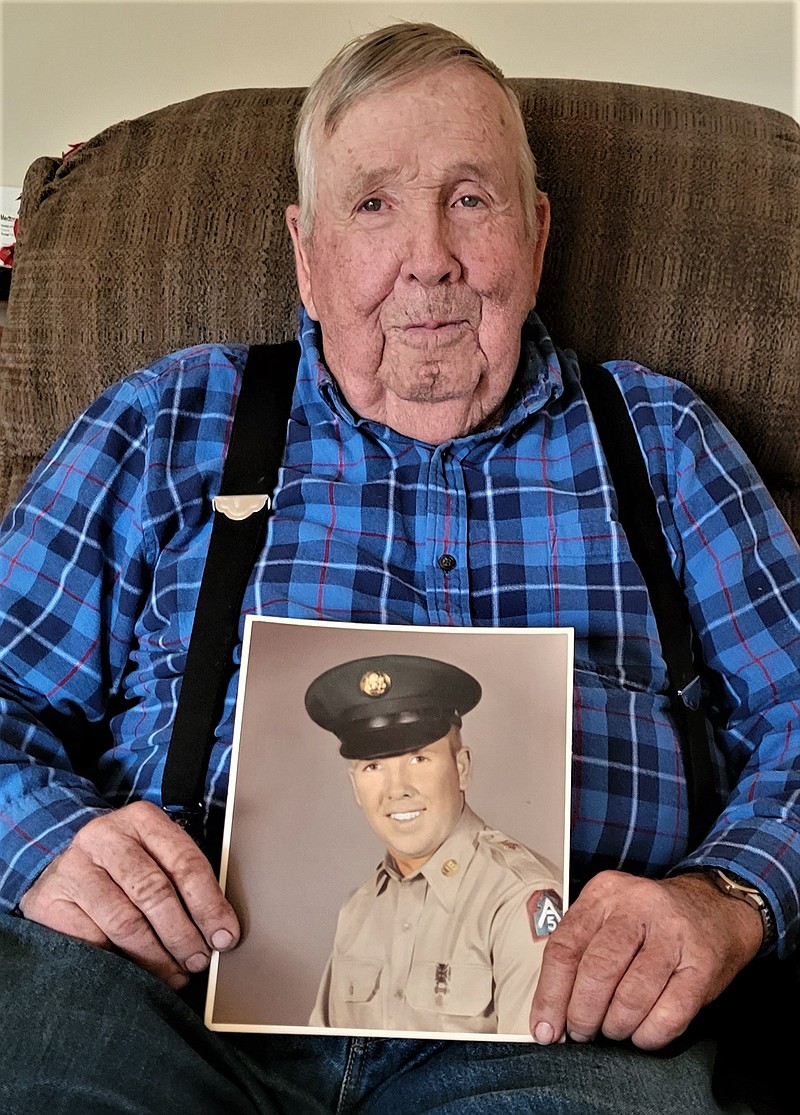The uncertain period of the Cold War unfolding between the Korean and Vietnam wars presented considerations for many young men of the nation.
After graduating from Eugene High School in 1957, it inspired Hickory Hill native Bob Duncan to make a decision -- wait and possibly be drafted into the military or voluntarily enlist, with the latter possibly providing him a little choice.
"Me and Wilburn Hoskins, one of my classmates, decided to join the U.S. Army because it seemed to be as good as any other branch of the service," Duncan said. "And by enlisting, we might be able to decide what we would do in the service."
Traveling to Jefferson Barracks for pre-induction physicals, Duncan and Hoskins were inducted into the U.S. Army in March 1958. Soon, they were on their way to Fort Leonard Wood to embark upon several weeks of basic training.
From there, Duncan and Hoskins made the trip to Fort Gordon, Georgia, where they received training in the career specialty they had chosen upon enlistment, that of a teletype repairman.
"During the Signal Corps training in Georgia, they taught us how to repair and maintain different types of communications equipment," he said. "The equipment we were using at that time would get out of tune and wouldn't relay messages correctly, so we learned to use a turning fork to correct it."
He added, "I also learned to drive the deuce-and-a half (2½ ton cargo truck) when we went on field exercises because we had our communications equipment set up in the back of it. But mostly," he chuckled, "we just tried to keep cool because it was hot and there wasn't air conditioning in those old barracks."
In December 1958, when his communications training was completed, the soldiers in his training company received orders for their next duty station. Duncan discovered he was assigned to a battalion in Germany while his high school classmate was being sent to Italy.
Assigned to the 32nd Signal Battalion at Darmstadt, Germany, Duncan became part of a team of soldiers who traveled around Germany to help repair communications equipment at various U.S. Army encampments.
"I certainly saw a lot of the German countryside," he said. "Other times, we participated in different training maneuvers. Although we never knew where we were going for maneuvers, the Germans somehow did and set up tents to sell stuff like beer, schnapps and schnitzel to the U.S. soldiers."
While overseas, Duncan was later detached to Frankfurt, Germany, and worked out of the basement of the IG Farben Building.
An expansive and impressive facility, the IG Farben Building had been used in World War II for many research projects in support of the German war effort, but later became headquarters for the U.S. Army's V Corps during much of the Cold War.
"There was still a lot of damage around Frankfurt from World War II; many buildings had been bombed but were never restored," Duncan said.
For the remainder of that overseas duty, Duncan's efforts to maintain communications equipment were supplemented by occasional field exercises. The training involved elements of V Corps, who strived to maintain preparedness under the continuing threat of Russian aggression in a divided Germany.
The training and work cycle did afford Duncan and the soldiers of the battalion opportunities to escape their military responsibilities and enjoy recreational visits to sites of interest in Europe.
"I remember that we were able to see the Heidelberg Castle and other locations in Germany, but I also recall visiting places in Denmark and Sweden," he said. "It wasn't that I planned on going there, but some soldiers in our unit said that these might be good places to go and see."
In December 1960, two years after first arriving in Germany, Duncan traveled by ship back to the United States. Upon his arrival, he received his discharge at Fort Hamilton, New York, and then traveled by train to St. Louis.
When back home in rural Cole County, he worked a few years at MFA Exchange in Eugene. He was then hired at Biederman Furniture Company in Jefferson City, where he met Betty Ehrhardt, who soon became his fiancée.
The couple married in April 1967 and raised a son and a daughter. Duncan was later employed by Popp's Lawn and Garden in Jefferson City, remaining there for more than a decade. Eventually, he was hired as a groundskeeper with the Department of Natural Resources, from which he retired in 2003.
Duncan settled his family on a farm north of Lohman where his wife had been raised, investing a large part of his time cultivating corn and milo while also raising cattle and pigs.
The period he spent in the military has imbued him with an enduring appreciation for all who served, inspiring his participation in events where he can listen and learn of the assorted stories of his fellow veterans.
"Because of the timeframe I served, there was no war being fought and I feel lucky that I was stationed in Germany," he said. "But the Cold War was an interesting period and for those of us in the service at that time, we did our duty to the country."
He added, "It was a unique experience and that's why I like attending events like Operation Bugle Boy, to visit with my fellow veterans and share a little bit about what we witnessed and learned from our military service."
Jeremy P. Ämick writes on behalf of the Silver Star Families of America.

